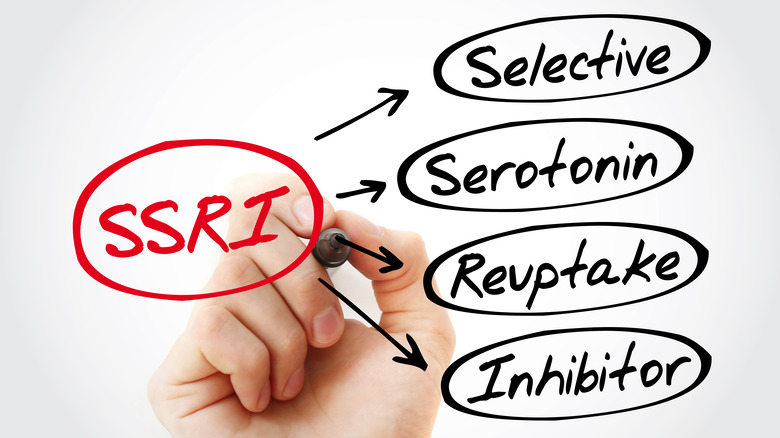What's The Difference Between SSRIs And SNRIs?
Seeking psychiatric help is a long and often difficult process. Patients may change doctors, prescriptions, and even diagnoses before they find a treatment that truly improves their lives.
The process is made no easier by the fact that there is often inadequate access to mental health resources. A 2017 report in the medical journal The Permanente Journal called for improved mental health resources and better integration of those resources into general medical practices. The report echoed a call made in a 2004 issue of the journal World Psychiatry, a call that is still being sounded today.
A lot has changed in the 13 years between those two reports, just as much has changed in the years since the second report was released. Some of those changes have focused more on the medical side of mental health, with companies issuing new medications to try and help those dealing with mental health issues. This increase in medication offers new hope to many people but it also opens up confusing new questions. One at the root of the matter is how the medications differ, especially the two largest classes: SSRIs and SNRIs.
Different medications for different chemicals
The key difference between SSRIs and SNRIs, according to the Indiana Family and Social Services Administration (IFSSA), is which brain chemicals they affect. SSRIs (selective serotonin reuptake inhibitors) affect the way serotonin affects a person's brain. SNRIs (serotonin and norepinephrine reuptake inhibitors), on the other hand, affect both serotonin and norepinephrine.
Drugs that fall into these 2 categories affect patients differently because both serotonin and norepinephrine play important yet distinctly different roles in the brain. Serotonin is a chemical messenger that carries messages between nerve cells. It also causes blood vessels to narrow, setting off the corresponding nervous system responses. Norepinephrine is part of the body's "fight or flight" response and is considered a stress hormone. It also carries nerve impulses from one neuron to another. Its messages sometimes trigger stress responses, much like adrenaline (via IFSSA).
WebMD explains that both classes of medication work to alleviate the symptoms of depression and regulate a person's mood. They go about it by blocking and channeling different brain chemicals. It is this difference that sometimes has patients trying different medications at different dosages before finding the option that suits them best.


